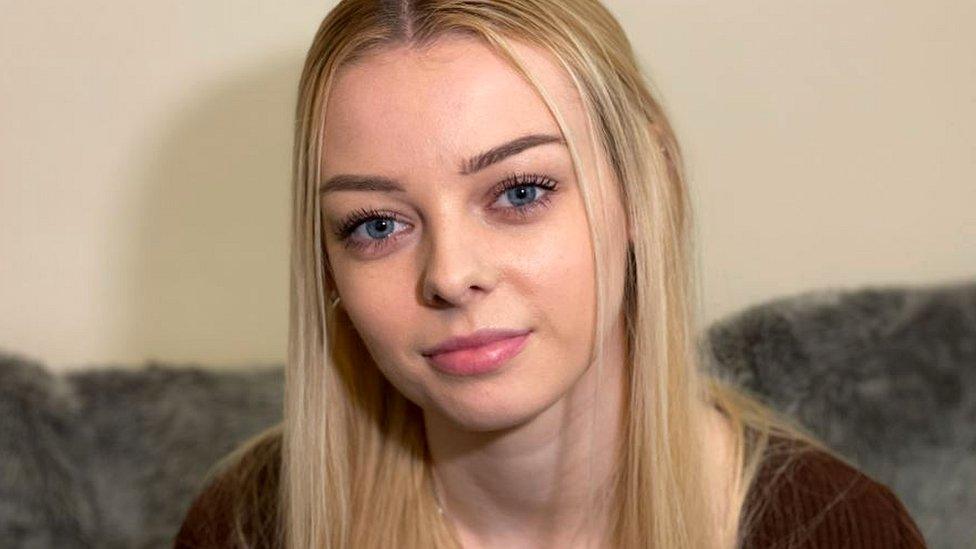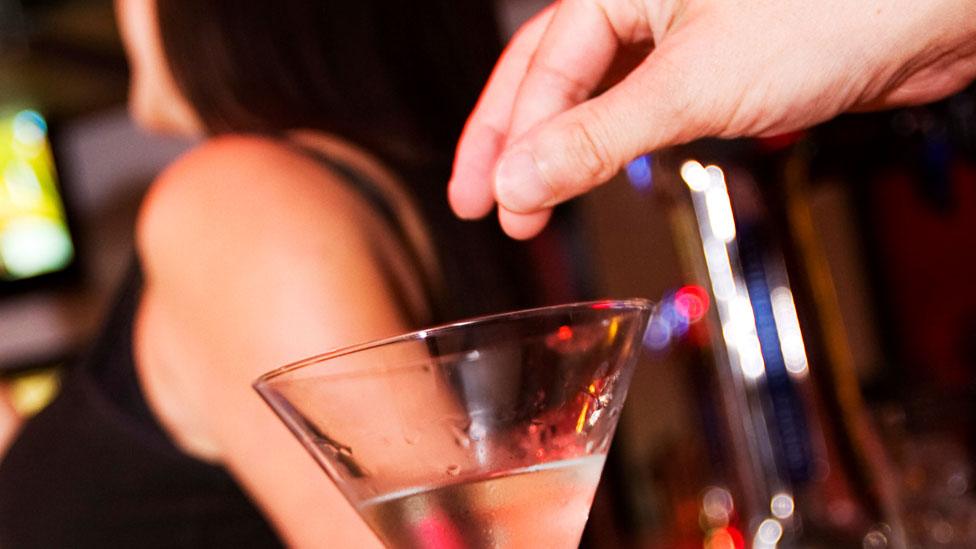Drink spiking: 'Men who spiked my drink brazen' says presenter Kate McCann
- Published

Journalist and presenter Kate McCann has revealed that she has been the victim of drink spiking while at a bar.
The Times Radio political editor said her drink was spiked by "a group of men so brazen they didn't care who saw".
She wrote on X, formerly Twitter, she had thought she would "be okay as I'd only had one sip but sadly it was enough". "It was awful and I was lucky," she added.
Ms McCann shared her story after an investigation in the Sunday Times, external.
She said she still did not understand why the men, who were spotted by a colleague, did it but said it was "so scarily common".
Spiking is the action of putting a drug into someone's drink, or into their body through another method, without their consent.
Writing in Monday's Times, external, Ms McCann said she could not remember much after having her drink spiked while out with colleagues.
"I suddenly got very hot and it felt like my brain was moving at two speeds," she writes.
"I had enough presence of mind to know something was very wrong, but I couldn't get my arms or legs to move in the way I wanted."
She said she had managed to get an Uber ride home - although she does not remember it - and had woken up hours later on her bathroom floor.
Replying to a user on X, Ms McCann said people "get confused" about spiking being similar to "being too drunk", and said it feels "nothing like being drunk - even really really drunk".
In December last year, the Home Office said the law would be "modernised" to make it clear that spiking is a crime.
However, the law change stopped short of calls from some to make spiking a specific offence.
Between May 2022 and April 2023, the first year drink spiking data was collected, police received 6,732 reports of spiking, including 957 reports of needle spiking, according to figures from the National Police Chiefs' Council, external.
The figures cover England and Wales, and are likely low due to underreporting.
Ms McCann said she did not tell police when she had her drink spiked but now wished she had. " Now that forces are collecting data properly it's really important to report it if this happens to you," she said.
A report on spiking was presented to Parliament in December, following on from what it said was an increase in reported spiking incidents in autumn 2021.
"The greatest number of incidents occurred in university towns, coinciding with Freshers' Week and students returning to higher education following lockdown," the report said.
At the time minister for victims and safeguarding Laura Farris said spiking was "an insidious and violating crime" and that it could be "traumatic and have long-lasting effects".
- Published28 December 2022

- Published17 December 2023
